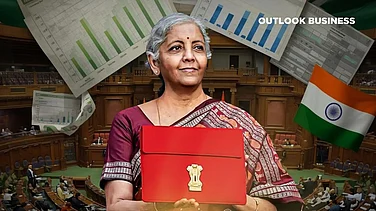The automobile industry has been on a turbulent path lately. While retail sales have been down, the electric vehicle space witnessed subsidy cuts last year. On the other hand, the FAME II (Faster Adoption and Manufacturing of Electric Vehicles) policy got a four-month extension, which is set to expire this month.
With Nirmala Sitharaman set to present her 7th consecutive budget on July 23, industry leaders are keeping a keen eye on what might be presented on the table for the automobile sector.
"As the incumbent government begins its third term, the commitment to green mobility is expected to intensify further, with a strong emphasis on 'Make in India' initiatives," said Mr. Ravi Machani, Co-Founder Investor, Tresa Motors.
In the interim budget presented before the general elections, the automobile sector didn't see any significant announcements. However, there was a massive Rs 1 trillion corpus allocated to the sunrise sector. As for the EV space, the industry is already pinning its hopes on efficacious policies that could help push EV penetration.
The EV play
While the total EV registrations in the country crossed the 1.6 million mark in FY24, the overall penetration rate is still quite low.
"As we approach the 2024 budget, the electric vehicle industry stands at a pivotal juncture. We are looking for continued support and substantial policy enhancements to accelerate the transition to sustainable transportation," said Hyder Khan, Director and CEO of Godawari Electric Motors.
He further added that investments in charging infrastructure and battery technology will be crucial to overcome existing barriers to widespread EV adoption.
India has already set an ambitious goal for 30 per cent of all vehicle sales to be electric by 2030. However, EV sales declined by nearly 7 per cent year-on-year during the April-June period, according to the Ministry of Road Transport and Highways' VAHAN portal.
Industry players believe that comprehensive support, including tax credits for EV purchases, reductions in GST for batteries and enhanced research into battery technologies can help in meeting the above target.
"Currently, the GST rate on EVs stands at 5 per cent, but relief on components such as batteries would be beneficial in the upcoming session," said Bharath Rao, Founder and CEO, Emobi.
Such measures could transform India's domestic EV market into a global hub, attracting investments from both domestic and international entities and enabling industry players to innovate and expand, he added.
































